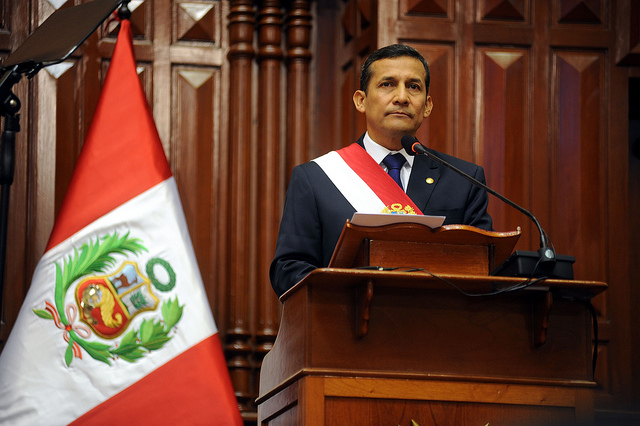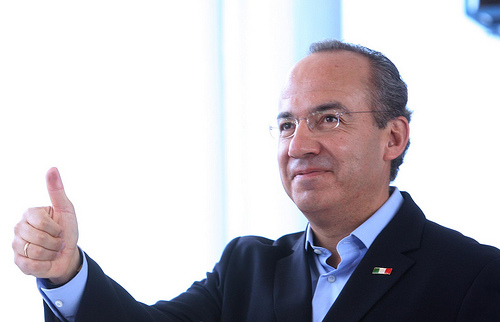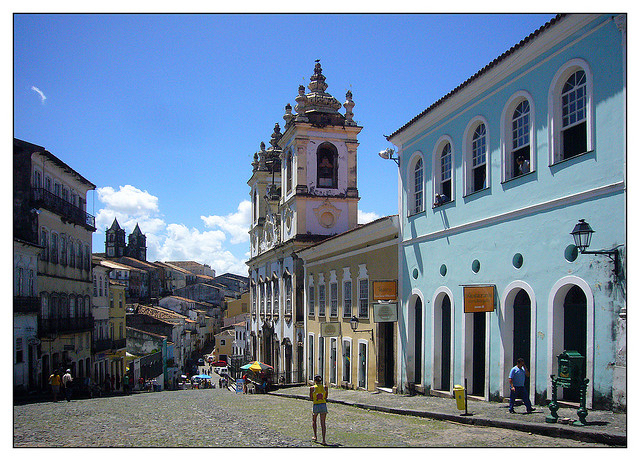
Latin America: Week in Review, North America
Great Reads Round-Up: February 16-22
February 22, 2015 By Staff
Killing in Washington State Offers ‘Ferguson’ Moment for Hispanics
Julie Turkewitz and Richard A. Oppel Jr. The New York Times. February 16, 2015.
On the afternoon of Feb. 10, Antonio Zambrano-Montes — a 35-year-old Hispanic resident of the agricultural town of Pasco, Washington — reportedly threw rocks at cars and police officers. Zambrano-Montes then ran away, with three officers right behind him. A graphic video shot by an onlooker captured what happened next: Zambrano-Montes turned around and put his hands up in the air, before getting shot to death by the officers. The killing has drawn comparisons to incidents of police brutality in Ferguson, Missouri and New York City, and sparked a wave of protests in Pasco. Julie Turkewitz and Richard A. Oppel Jr.’s report for The New York Times explores the current tensions in a city that is 56 percent Hispanic, but that lacks a significant Hispanic representation in positions of authority, be it in the police force or in government.
“The Media Doesn’t Care What Happens Here”
Matthew Shaer. The New York Times. February 18, 2015.
What do you do when you feel that the media routinely ignores extrajudicial police killings in your impoverished neighborhood? If you’re 25-year-old Raull — a resident of one of the largest slums in Rio de Janeiro, Brazil — you build a media collective with your friends. The New York Times’ Matthew Shaer explores the citizen journalism emerging in places like Syria and Raull’s Complexo do Alemão — areas that are largely inaccessible to traditional media outlets — and the international NGO’s that train them and encourage their efforts.
Nicaraguans demand action over illness killing thousands of sugar cane workers
Nina Lakhani. The Guardian. February 16, 2015.
Chronic Kidney Disease (CKD) has claimed the lives of at least 20,000 Central Americans in the past 20 years, the majority of whom are sugar workers. In Chichigalpa, a municipality on Nicaragua’s Pacific coast, the disease has been responsible for nearly half of male deaths in the past decade, but still men continue the arduous work in sugar cane fields in order to support their families. Many blame Nicaragua’s government, which they say ignores the plight of the country’s rural poor, and large business conglomerates for failing to provide sugar cane workers with adequate medical records and treatment. As research into the causes of CKD and its connection to grueling work in the sun without sufficient shade or water continue, cane cutters and their families have begun to protest and demand compensation.
Amnesty and Justice for All: The Art of Regina José Galindo
Elena Shtromberg. Los Angeles Review of Books. February 21, 2015.
Elena Shtromberg looks at the work of Guatemalan performance artist Regina José Galindo. In the process, Shtromberg highlights the myriad ways in which José Galindo’s work takes on the painful, complex history of Guatemala and, most recently, the roles inhabited by the victims and victimizers of the U.S. immigration policy.
Image: The Guardian video, screenshot
< Previous Article

February 20, 2015 > Staff
Caracas Mayor Arrested Over Alleged U.S.-Backed Conspiracy
Next Article >




